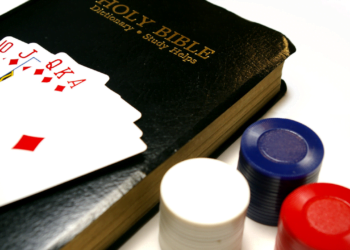No products in the cart.
What is the Christian Perspective on the Role of Deacons in the Church?
This post contains paid and/or affiliate links. I make a small commission at no extra cost to you. Please see our Privacy Policy.
Deacons play a vital role in the church, serving as model servants and assisting pastors or elders. They are responsible for protecting church unity, organizing practical service, and meeting tangible needs within the faith community.
While every Christian is called to be a servant, the designation of deacon is a formal church office. The role of deacons is to excel in being attentive and responsive to the church’s needs, assisting elders, guarding the ministry of the word, organizing service, caring for the needy, protecting unity, and mobilizing ministry. They are integral to the functioning and well-being of the church.
In this article, we will explore the origins of deacons in the early church, their qualifications and responsibilities, and the importance of the diaconate in the church’s overall ministry. Let’s dive in and discover the significance of deacons in the Christian faith.
The Origins of Deacons in the Early Church
The role of deacons in the early church can be traced back to the Book of Acts. In Acts 6:1-7, the apostles faced a conflict within the Jerusalem congregation regarding the neglect of widows in the daily distribution. To address this issue, they appointed seven men to serve as deacons.
This strategic division of labor allowed the apostles to focus on preaching and prayer while the deacons handled the church’s practical needs. They were responsible for ensuring the welfare of the entire church community, particularly the widows who were being overlooked.
By appointing deacons, the early church demonstrated the importance of preserving congregational unity and caring for the faith community’s practical needs. This biblical example highlights the significance of deacons in both the early church and modern-day congregations.
Qualifications and Responsibilities of Deacons
The qualifications and responsibilities of deacons are outlined in the New Testament. According to 1 Timothy 3:8-13, deacons must possess specific character traits to fulfill their role within the church.
Qualifications of Deacons
- Dignified: Deacons should exhibit maturity and reverence, representing the church honorably.
- Not double-tongued: Deacons are expected to be truthful and consistent in their speech, avoiding deceit or dishonesty.
- Not addicted to much wine: Deacons should exercise moderation and self-control regarding alcohol consumption.
- Not greedy for dishonest gain: Deacons must be free from a desire for personal financial gain through unethical means.
- Manage households well: Deacons should demonstrate competence in managing their own families, reflecting the ability to care for the church family.
- Supported by their spouses: Deacons should have the support and partnership of their spouses, as their role may require shared responsibilities.
Responsibilities of Deacons
The specific responsibilities of deacons may vary based on the needs and gifts within the church community. Deacons are typically entrusted with tasks that do not involve preaching, teaching, or exhortation. Here are some typical responsibilities:
- Administrative duties: Deacons often assist in administrative tasks such as record-keeping, coordinating church events, or managing communication.
- Building maintenance: Deacons may oversee the maintenance and cleanliness of the church building, ensuring a welcoming environment for worship.
- Ushering: Deacons may serve as ushers, guiding church members and visitors to their seats, distributing materials, and assisting with logistics during services.
- Finance-related responsibilities: Deacons may be involved in financial matters, such as collecting offerings, managing budgets, or coordinating charitable initiatives.
Deacons play an essential role as servants to the church, helping to meet the practical needs of the congregation and supporting the church’s overall ministry. Their qualifications and responsibilities are integral to maintaining the church community’s unity, integrity, and well-being.
Conclusion
The role of deacons in the Christian church is of utmost importance. They serve as model servants, assisting pastors and elders in their ministry. Deacons play a vital role in protecting church unity, ensuring the congregation remains strong and united in their pursuit of faith.
The key responsibilities of deacons are organizing practical service and meeting tangible needs within the church community. Whether it involves caring for the needy, mobilizing ministry, or managing administrative tasks, deacons serve as the backbone of the church, enabling the smooth functioning of various ministries.
The origins of deacons can be traced back to the early church, where their appointment addressed specific needs and preserved congregational unity. This historical context highlights the significance of deacons in contributing to the overall welfare of the church community.
The New Testament outlines specific qualifications for deacons, emphasizing the importance of character and integrity. By embodying these qualities, deacons inspire trust and confidence in their service to the church.
In conclusion, the role of deacons in church ministry cannot be understated. They are fundamental in supporting the work of pastors, elders, and the entire congregation. A healthy and effective diaconate ensures the overall health and well-being of the church, enabling it to fulfill its mission and purpose.
FAQ
What is the role of deacons in the church?
Deacons play a vital role in the church by serving as model servants and assisting pastors or elders. They are responsible for protecting church unity, organizing practical service, and meeting tangible needs within the faith community.
Where can the origins of deacons in the church be traced back to?
The origins of deacons can be traced back to the early church, specifically in the Book of Acts. In Acts 6:1-7, the apostles faced a conflict regarding the neglect of widows in the daily distribution. To address this issue, they appointed seven men to serve as deacons.
What are the qualifications and responsibilities of deacons?
According to the New Testament, deacons must possess certain character traits such as being dignified, not double-tongued, not addicted to much wine, and not greedy for dishonest gain. They must also manage their households well and have the support of their spouses. The specific responsibilities of deacons may vary depending on the needs and gifts within the church. Still, generally, they are entrusted with tasks that do not involve preaching, teaching, or exhortation.
What is the overall purpose of deacons in the church?
The overall purpose of deacons is to support the church’s ministry and help meet the congregation’s needs. They serve as servants to the church, assisting with practical needs and supporting the church’s overall ministry.













